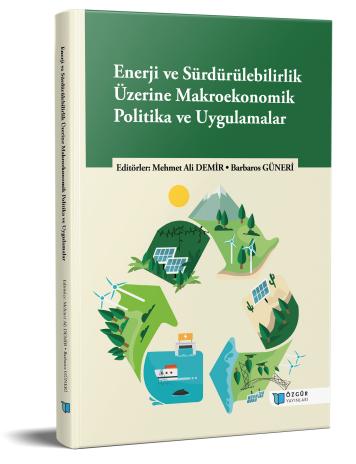
Sustainable Energy Transition and Social Inequality: An Examination of the Case of Turkiye
Chapter from the book:
Demir,
M.
A.
&
Güneri,
B.
(eds.)
2025.
Macroeconomic Policies and Practices on Energy and Sustainability.
Synopsis
This study examines the dynamic relationship between income inequality, economic growth, and renewable energy consumption in Turkey over the period 1986–2023. Employing the Autoregressive Distributed Lag (ARDL) bounds testing approach, the analysis confirms the existence of a long-run cointegration relationship among the variables. Empirical findings indicate a nonlinear, inverted U-shaped nexus between per capita GDP and renewable energy consumption, where GDP positively influences renewable energy use up to a threshold, beyond which the effect becomes negative and statistically significant. Income inequality is found to exert a positive and statistically significant short-run impact on renewable energy consumption, while trade openness does not demonstrate a significant effect in either the short or long term. Model stability and robustness are validated through CUSUM and CUSUMSQ tests alongside other diagnostic checks. The results underscore the importance of considering both economic growth dynamics and social factors such as income distribution when formulating sustainable energy policies. These findings contribute to the broader literature by highlighting the heterogeneous effects of economic development and inequality on renewable energy adoption in a developing country context.

